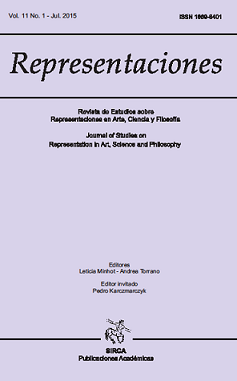Discurso y decreto: Spinoza Althusser y Pêcheux
Palavras-chave:
Ideología, Discurso, Decreto, Ideology, Discourse, DecreeResumo
This essay examines the place of the concept of discourse in the genesis of Althusser’s theory of the Ideological State Apparatuses. A reading of his “Three Notes on the Theory of the Discourses” suggests that the near disappearance of the term “discourse” from the ISAs essay represents the suppression rather than the resolution of the contradictions that mark the notion of the interpellation of the subject. By reading Althusser in the light of Spinoza’s theory of the decree in the Ethics and of Pêcheux’s notion of discourse, we are able to grasp the materiality of language in all its senses, but also to reformulate the lexicon of consciousness and interiority in materialist term. The conjunction of Spinoza, Althusser and Pêcheux allows us better to understand and transform through struggle what the latter called “the plague of subjection”.
Este ensayo examina el rol del concepto de discurso en la génesis de la teoría de los Aparatos Ideológicos de Estado (AIE) de Althusser. Una lectura de sus “Tres notas sobre la teoría de los discursos” sugiere que la práctica desaparición del término “discurso” de ensayo sobre los AIE representa la supresión y no la resolución de las tensiones que afectan a la noción de la interpelación del sujeto. Al leer a Althusser a la luz de la teoría spinociana del decreto, desarrollada en la Ética, y de la noción de discurso de Pêcheux, nos tornamos capaces de aprehender la materialidad del lenguaje en todos sus aspectos, pero también de reformular el vocabulario de la conciencia y la interioridad de una manera materialista. La conjunción de Spinoza, Althusser y Pêcheux nos permite comprender mejor y transformar mediante la lucha lo que el último denominó “la peste de la sujeción”.

